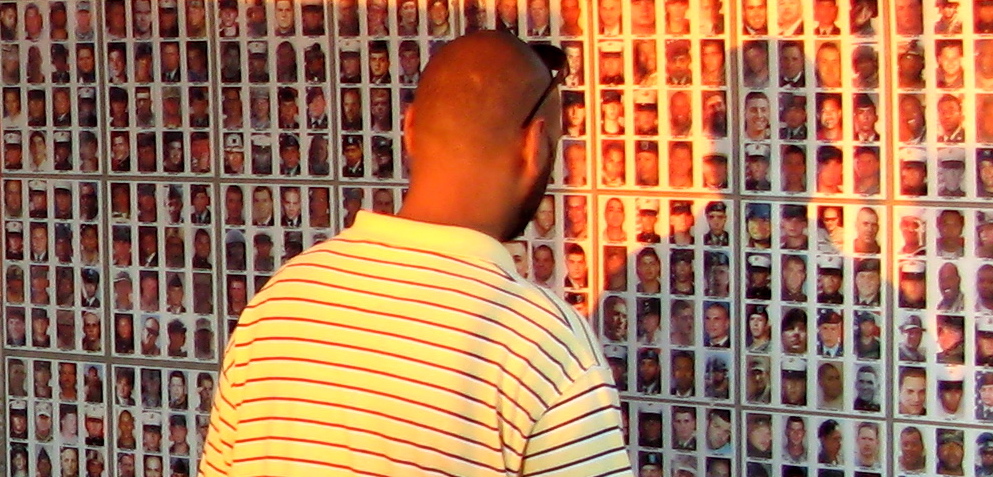A few years ago I was lucky enough to attend a colloquium about Myth, Wagner and the Human Brain. The event was a conversation among friends, the acclaimed theater and opera director Peter Sellars, world-renowned visual artist Bill Viola, and Antonio Damasio, Director of the USC Brain and Creativity Institute and author of Descartes’ Error, Emotion Reason and the Human Brain. Dr. Damasio began by explaining how the mind, brain and body create memory. It turns out that human memory is a very creative and complex activity. Here are some of my notes.
1. Memory is uniquely human. While it could be said that most living organisms demonstrate memory in terms of learned behaviors, the human ability to think about ourselves as individuals in relationship to others – and especially the ability to imagine what the other person is feeling or thinking – is a very complicated and uniquely human form of memory.
2. Memory is a holistic creative act. Your mind is not like a video camera objectively recording everything you experience. According to Dr. Damasio, memory is a sensory-motor cognitive reconstruction that involves many parts of the brain and body.
3. Memory is mythical. Here I am using “myth” in the best sense of the word: the ancestral stories handed down through time that hold truth even though they may never have actually happened. Bill Viola compared myth to the form you fill out at the Department of Motor Vehicles. The lines or boxes where you record certain information are similar to the archetypal patterns that underpin our memories. Myth gives us building blocks so we can tell ourselves our own stories. Our stories need a beginning, middle and end. We want to know who are the good guys. Who are the bad guys? What is my role? What does this all mean? In some way, every life is a “tale as old as time.” And yet, neither the form nor the content tells the whole tale.
4. Memory is not fixed. There is a popular idea that memories are like files stored in our “memory bank” filing cabinet that resides in a particular region of the brain. According to Dr. Dimasio this is not the way it happens. Memories are dynamic, holographic and subjective. The files change over time. And this is a good thing. Each time you remember someone or something, you have an opportunity to reflect, re-cognize and learn something new.
5. Memory is subjective and relational. Your point of view is often shaped by past memories. For example, what memories does Memorial Day evoke for you? Do you think of road trips, barbecues, beer and the first days of summer? Or is it an emotional day when you remember a fallen comrade or relative who died in battle?
6. Memory is interpretive. You have a memory of what happened but you also have a memory of the meaning you assigned to it. Your interpretation may change over time. It may also be dramatically different than someone else’s interpretation of exactly the same event.
7. Memory is contextual. Peter Sellars said something that really struck a chord for me. “You know when things are going good in your life, not much happens. But when things go bad, that’s when important things happen. When things go bad, you have no choice but to dive deep and tap resources you didn’t even know you had.” We like to label our memories as “good”or “bad.” What would change if you were to redefine some of your “bad” memories as the times you learned something important.
We are mythic beings living in mythic times. In the US Memorial Day is a holiday to enjoy as well as an opportunity to reflect on the memory of people who have given their lives in service. Whether or not we knew them personally, and regardless of politics, it’s good to remember that there’s a mythic story at the heart of each human life, perhaps especially the life of a soldier.
I saw a touching story on CNN today. Two adult siblings discovered a poem their deceased father had written about having to kill a German soldier during World War II. He had never mentioned the incident to his family so the poem was a surprise. It changed and enriched how they remember their father. The poem – itself an act of memory – has changed me too. The author’s name was Sgt. James Lenihan. Towards the end of Lenihan’s life, he actively sought out his old war buddies and described his time serving as one of the “worst and greatest experiences” of his life. You can read his poem here.
Perhaps it’s not so much that we remember our lives, but how we remember them… and hopefully learn.

Linda, What a thought-provoking post.
It’s interesting to me that during a good time in my life, I don’t think too much about how good it is. But if I move away, I look back on that time as being wonderful. I suppose that when we are experiencing anything, we are creating memories.
.-= Madeleine Kolb´s last blog ..Alzheimer’s Disease and Brain Games? =-.
Lovely reflections upon memory, Linda. So many ways they weave through our lives, effect our paths and change our perspective. I like your closing line, that they are how we remember, their quality, meaning and the hope they give us. Thank you for a memorable post.
.-= katie´s last blog ..7-Week Life Cleanse: Moving Differently in Week 2 =-.
Thanks for your comment Katie… especially the part about “a memorable post.” 😉